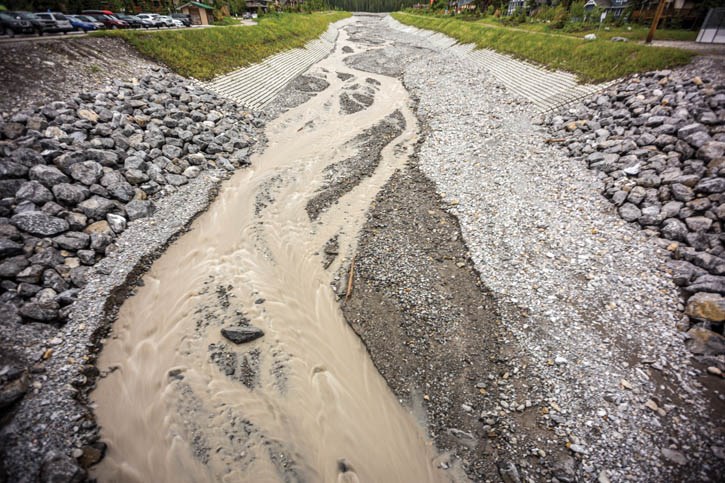BANFF – The Bow Valley experienced one of the rainiest summers on record.
According to Environment and Climate Change Canada, this summer was the rainiest since 2005 and ranked as the 12th wettest since 1890 when weather data began to be recorded in Banff.
“People did feel like it never stopped raining, and it was definitely wetter than normal,” said Kyle Fougère, meteorologist at Environment and Climate Change Canada. “It’s been the wettest in the last 14 years.”
Banff recorded 245 mm of precipitation this summer compared to 166 mm in an average summer, which is also considered a good proxy for Canmore.
The months of July and August were significantly wetter than usual, although June, which is typically the rainiest month of the year, saw 62 mm of rain compared to the average of 68 mm.
With almost double the average rainfall, July recorded 95 mm compared to the normal 47 mm. In August, 88 mm of precipitation fell compared to the average of 51 mm.
“It wasn’t the wettest on record, but there were a lot of days that had rain,” said Fougère. “It was the wettest summer in the last 14 years.”
While many complained about the cooler weather, temperatures were actually average for the summer when looking at long-term data for the past 129 years. The hottest the mercury soared this summer was 29.5 C on July 23.
The mean temperature – an average of the high and low – was 13 C compared to the long-term average of 13.1 C. That said, the average for the past five years has been 14 C.
“This is the coldest summer we’ve had since 2010 in Banff, but one summer doesn’t make a trend,” said Fougère.
“The trend has been warmer summers, so people are now accustomed to warmer summers.”
Typically, an Alberta summer has several days with ridges of high pressure that bring warm temperatures and sunny skies for several consecutive days, even up to a week.
“The temperature starts to build and get warmer under these ridges and that’s what was missing this year,” said Fougère.
“There weren’t many stretches where you had multiple days of really nice warm temperatures in a row. That was the pattern we had this year.”
Environment Canada’s seasonal forecast for September, October and November is for slightly above average fall temperatures.
The fall forecast for the Banff region is for normal precipitation amounts – 42 mms for September, 42 mm, 32 mm in October and 33 mm in November.
“Obviously as get later in the season, some of that precipitation falls in the form of snow,” said Fougère.




